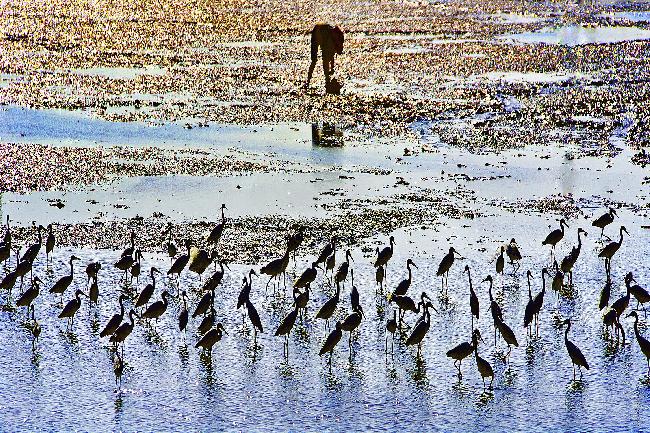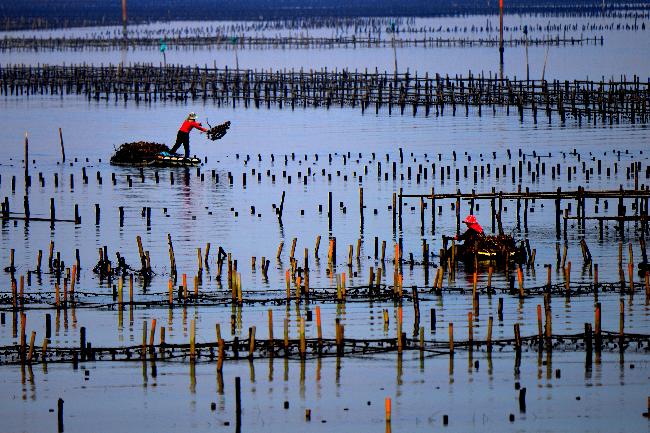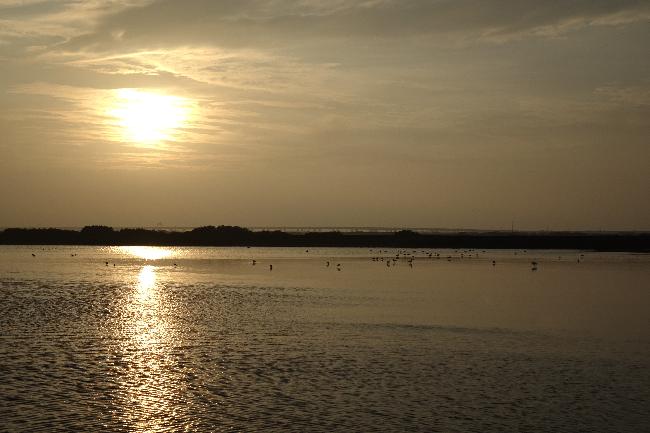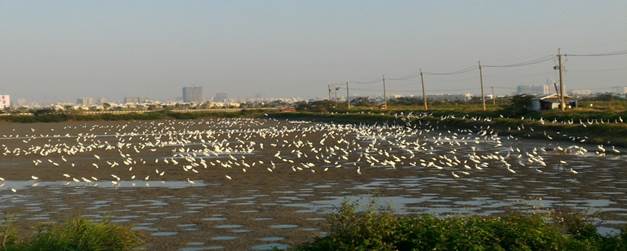Taiwan's Wetlands of Importance
Map of Taiwan's Wetlands
Cigu Salt Pan Important Wetland
Date:2019/04/18
Number of Visitors1371
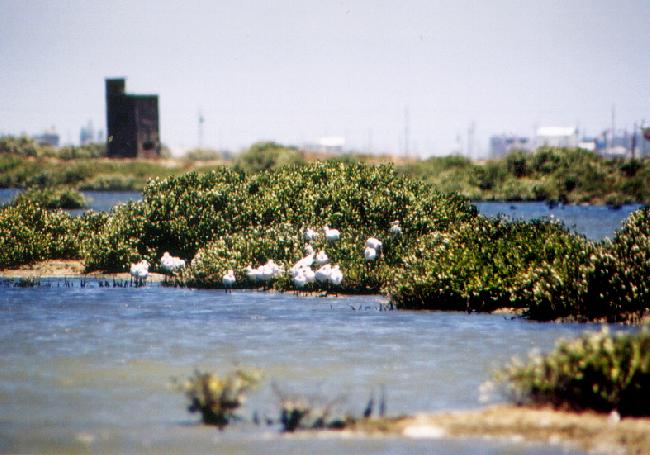
-
Number
TW022
-
Area
3,697 ha
-
Chinese Name
七股鹽田重要濕地
-
Category
Coastal natural wetland and small portions of manmade wetland
-
Name
Cigu Salt Pan Important Wetland
-
Administrative area
Qizhan District and General District, Tainan City
-
Related plans
National Scenic Area
-
Related authorities or units
Taijiang National Park Headquarters
-
Boundaries
The wetland is located on the southwestern coastal area of Tainan. Its northern boundary (excluding Kunshen Harbor) reaches the southern levee of Jiangjun Fishing Harbor whereas its eastern boundary extends to Country Road System South 25-1 and South 25 and the levee. Its southern boundary starts from northern levee of Cigu Lagoon while it extends to western sea area with six-meter isobaths, including Chingshan Habor Sandbank, Wangziliao Sandbank and Dintaoer Sandbank.
-
Introduction
The wetland is a hydrological system consisting of Cigu Lagoon, Cigu River, Dazhao ditch and regional drainage system. Cigu Lagoon, the largest lagoon in Taiwan, is granted with zoning fishing rights.
Cigu Salt Pan has stopped making sun-dried salt since May 2002. Mangrove has grown on the abandoned salt pans and waterways. Dingshan Village and Dujian Village are two major habitats for black-faced Spoonbills. -
Ecological resources of importance
Records show that the plants grown here include 40 families, 108 genera and 131 species (including the endemic species Cyclosorus acuminatus). These plants consist of 96 endemic species, 25 naturalized species, 6 cultivars and three rare species.
The wetland is also home to 38 families and 125 species of birds. The dominant species on the water include little egret, great cormorant and little ringed plover. The black mangrove forest of approximately 5 hectares near the edge of the lagoon has become egrets’ forest. The animals here include 4 orders, 5 families, and 13 species of mammals, 3 endemic species (Formosan rat, spiny rate and little yellow rat), five families and eleven species of reptiles and one endemic species (Stejneger’s grass Lizard). -
Endangered species
Black-faced Spoonbill, Oriental White Stork
-
Rare and valuable species
Eastern Marsh Harrier, Osprey.
-
Types to be conserved
Eastern Collared Pratincole, Brown Shrike; Kentish Plover and Black-winged Stilt (for which the wetland is a major breeding site), fish (food sources for Black-faced Spoonbills during winter).
-
The current situation and potential threats of wetlands
The fan-shaped salt pan at northern Chinkunseng and the salt pans at Chongliao Big Ditch are awaiting negotiation for inclusion in Cigu Wetland.
-
Participating in recommended units
Wetlands Taiwan.

